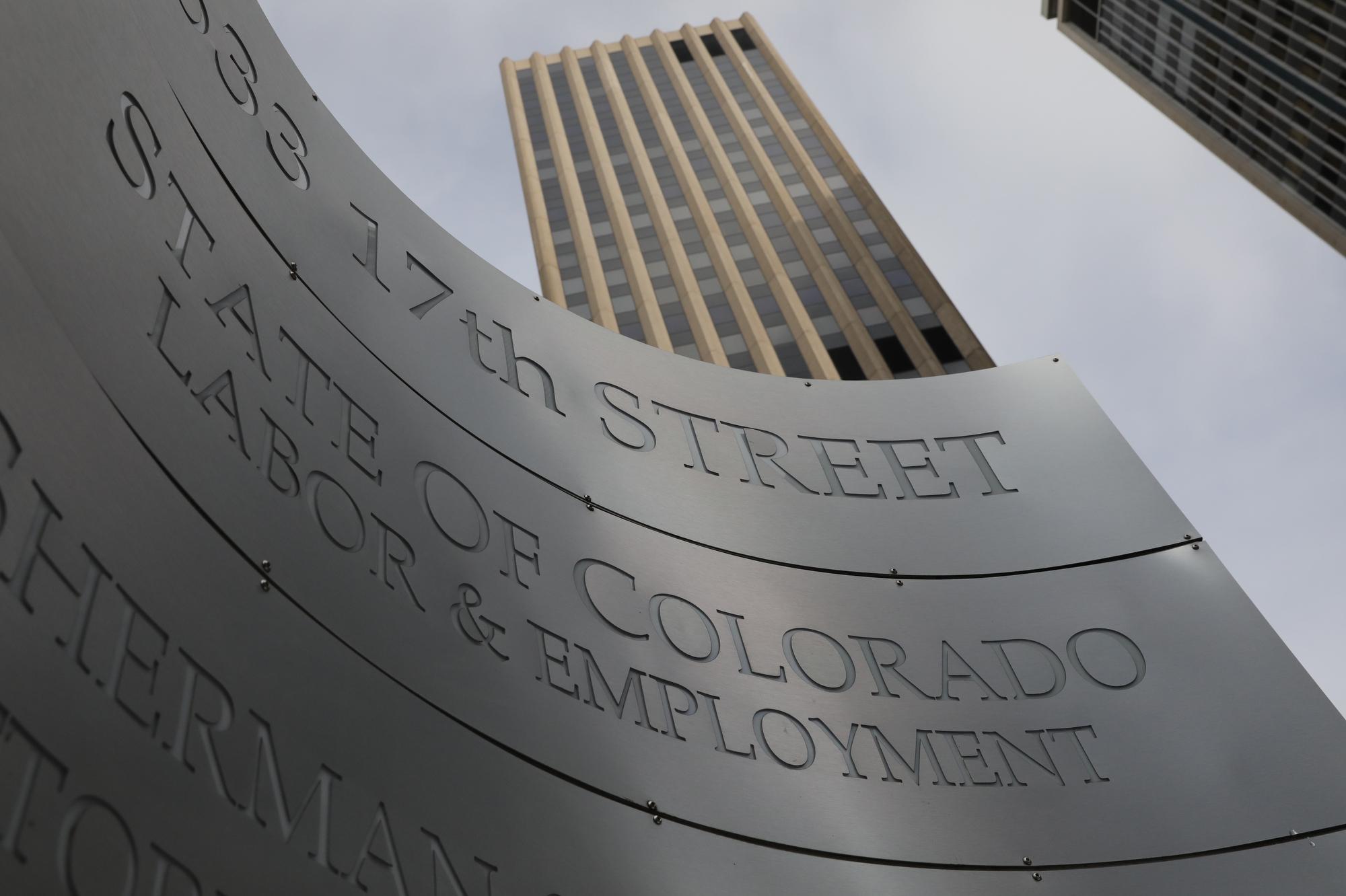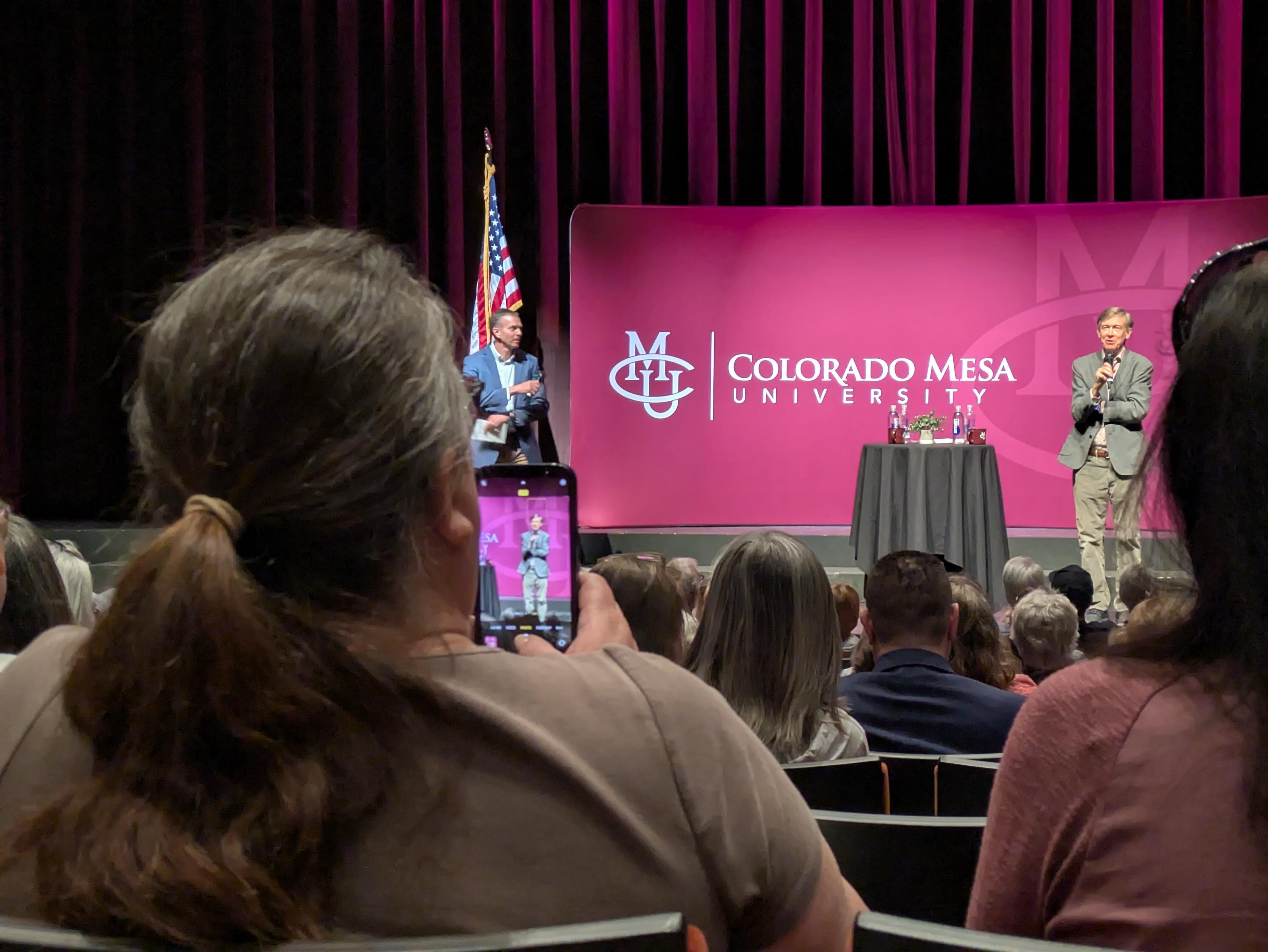
Colorado is ready to pay extended unemployment benefits to most people who qualify, ending a weeks-long gap in coverage, according to the state labor department.
Hundreds of thousands of people were left without benefits when federal extended benefits and the Pandemic Unemployment Assistance program expired late last year. Congress authorized extensions at the last minute, but the labor department has taken several weeks to implement the new benefits.
Starting today, about 230,000 people will receive emails from the Colorado Department of Labor and Employment about how to resume their benefits. They represent the majority of people who will qualify for the extended benefits, but some will have to wait longer.
After following the instructions in the email, qualifying people should be able to apply for extended benefits on Monday through the MyUI+ system, and the benefits will be paid next week.
The state also is preparing to begin payment of the $300-a-week “FPUC” bonus on Sunday. The extended benefits and the bonus are generally payable for 11 weeks, from Dec. 27 and March 14. Colorado will pay the new benefits retroactively for the past few weeks.
Colorado is in the middle of the pack, compared to other states’ efforts to implement the new programs. Twenty-eight other states had resumed PUA payments and 26 states had implemented the extension to regular benefits as of Jan. 27, according to research by The Century Foundation.
And only a handful of states, including Colorado, have not yet implemented the $300-a-week boost. Colorado state officials said that they had to complete the sprawling MyUI+ software upgrade earlier this month before they could finish programming the extended benefits. The software upgrade saved the state from longer delays, they said.
Cher Roybal Haavind, the deputy executive director for CDLE, said that the department doesn’t yet have a timeline for rolling out extended benefits to the next group of people after this. That second group includes people who had already run out of benefits prior to the programs’ expiration date in December.
“We understand that this gap in benefits has been challenging, and we appreciate your patience as we have worked to program these changes into our systems,” read an email from the labor department.
What you need to do to get extended benefits:
Extended PEUC and PUA benefits will be available for the week of Feb. 1 for people in the first phase of deployment. That first phase only includes people who still had active claims when the previous programs expired late in December. They should receive an email from CDLE.
The email instructs them to:
- Log into the MyUI+ system. If necessary, create an account.
- Apply for regular unemployment benefits by selecting “Apply for Standard UI Benefits” in the navigation menu. This is necessary even for people who know they have exhausted their regular benefits. The system must reject your application for regular benefits before it can approve you for extended benefits. This is a requirement of federal guidelines, according to CDLE. It can take 24 hours to get that rejection. If you do not see an option to apply for standard benefits, continue to the next step.
- On or after Feb. 1, reopen your PUA or PEUC claim in MyUI+.
The system will automatically backdate claims for all available weeks. Once the claim is reopened, applicants must continue to certify their claim weekly to get payments.
How long will extended benefits continue?
The extended benefits are divided into three different programs.
- Pandemic Emergency Unemployment Compensation, or PEUC, provides extra weeks of benefits for people who have expended all their weeks of regular unemployment benefits.
- Pandemic Unemployment Assistance, or PUA, is the program for gig workers, self-employed people and independent workers.
- Federal Pandemic Unemployment Compensation, or FPUC, is the extra $300 per week for all unemployment recipients for 11 weeks.
For the most part, the extended benefits will last 11 weeks. They'll be payable for the period between Dec. 27 and March 14, when the programs "expire."
However, some people will be allowed to keep collecting benefits during a phaseout period for several weeks after that, according to the U.S. Department of Labor.
Anyone who collects benefits in the week ending March 14 can continue to collect benefits for another four weeks afterward — but only if they haven't yet surpassed 50 weeks of PUA benefits or 24 weeks of PEUC benefits. It can get very complicated, but the state's unemployment system will likely tell people the number of weeks they have resuming.
The $300 boost will expire for everyone on March 14.









